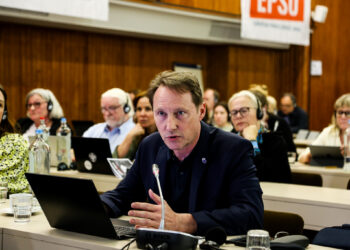Brussels – The end has come for the complicated green light to the EU law on imported deforestation. Less than a month before the original application date (Dec. 30, 2024), European institutions agreed on a one-year delay: the rules will be applicable from Dec. 30, 2025, for large companies and from June 30, 2026, for micro and small companies.
There was no step back on new supply chain control requirements for producers, processors, and traders; there was no step back “on the substance” of the law, the EU Council assures. The European People’s Party, which together with far-right groups had taken advantage of the European Commission’s extension proposal to insert other changes to the regulation’s text, was defeated. Member countries have returned to the sender the amendments approved on the knife’s edge by Parliament, which would have watered down the law and confirmed only the time delay of its application.
Specifically, the regulation — called EUDR (Regulation on Deforestation-free Products) — aims to prevent the entry into the single market of products that result from the over-exploitation of forested areas, imposing greater control on companies over their supply chain. The tightening affects palm oil, wood, beef, and rubber in particular, but also several associated materials, such as leather, chocolate, furniture, printed paper, and charcoal.
The postponement will allow third countries, member states, operators, and traders to be “fully prepared in terms of their due diligence obligations,” the EU Council explained in a statement. In short, an extra year would provide legal certainty, predictability, and sufficient time “for a smooth and effective implementation of the rules.” For the newly appointed EU Commissioner for the Environment, Jessica Roswall, the European Commission “listened to comments from businesses, farmers, and a range of international stakeholders” and put forth “a balanced proposal that “provides additional certainty and predictability for businesses.”
In the meantime, from now until December 30, 2025, the European Commission will continue “providing further clarifications on the legislation and explore additional simplifications, in full compliance with the objectives of the Regulation, through updates of the guidelines and the frequently asked questions document,” the EU executive said. In a written statement that went along with the agreement, the Commission commits to “lighten the burden on businesses by reducing administrative requirements and eliminating unnecessary bureaucratic hurdles.” The European People’s Party (EPP) immediately hailed the commitment as a victory, arguing that “thanks to the EPP, the European Commission has committed to updating the law within a year.”
On the other hand, the Socialists and Democrats Group claimed “a key role” in ensuring that the substance of the regulation “remained intact despite the efforts of the EPP and far-right factions to weaken it considerably.” Socialist MEP Delara Burkhardt, negotiator on the law for the European Parliament, rejoiced, “We have managed to end the embarrassing spectacle orchestrated by the EPP and the stalemate they have caused businesses.”
The crisis in the pro-European majority that the EPP opened over the EUDR regulation has temporarily receded. However, the group led by Manfred Weber has shown that it could bypass the cordon sanitaire if it wanted to and look to the right for the votes it needs to weaken the implementation of the Green Pact. The agreement found at the trialogues on the deforestation law will now have to go through the Council and Parliament one last time for final approval. Piecing together the ‘Venezuela majority’ between the EPP, Patriots, and Sovereignists to block it once more would perhaps be the final blow to the already fragile majority. However, the final word has not been spoken yet.
English version by the Translation Service of Withub
![Il commissario per il Commercio, Maros Sefcovic, durante il dibattito d'Aula sulla politica Usa dei dazi [Strasburgo, 6 maggio 2025]](https://www.eunews.it/wp-content/uploads/2025/05/sefcovic-dazi-350x250.png)








